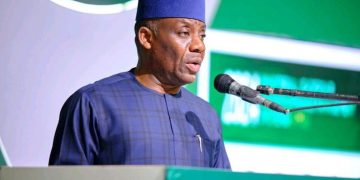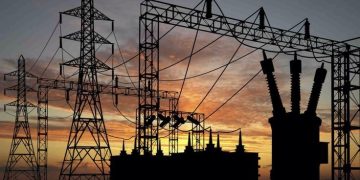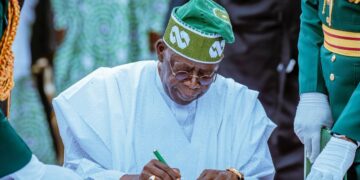President Bola Tinubu has confirmed the imminent return of Petrobras, Brazil’s state-owned oil company, to Nigeria, five years after the energy giant suspended its joint venture operations in the country.
Speaking during a joint press conference with Brazilian President Luiz Inácio Lula da Silva in Brasília on Monday, President Tinubu described Petrobras’ comeback as a “milestone” that would reignite robust economic cooperation between Nigeria and Brazil in the global oil and gas sector.
“We have the largest gas repository. So, I don’t see why Petrobras doesn’t join as a partner in Nigeria as soon as possible. I appreciate President Lula’s promise that this will be done as soon as possible,” Tinubu declared.
Why Petrobras is Returning to Nigeria
Petrobras, which exited Nigeria’s deepwater oil projects around 2020, is now making a strategic comeback. The company is seeking to expand its global footprint by targeting frontier exploration zones, and Nigeria, with its vast gas reserves and untapped deepwater potential, is central to that strategy.
Petrobras’ expertise in deepwater exploration makes its return a significant development for Nigeria’s oil industry. For Brazil, the move is also a diversification strategy, allowing Petrobras to strengthen assets outside its home market while tapping into Africa’s shared geological potential with Brazil.
Nigeria’s oil and gas sector, under Tinubu’s reforms, is being repositioned for greater efficiency and investor confidence. The restructuring of the Nigerian National Petroleum Company (NNPC), coupled with new policies to boost oil production and gas monetization, has created an enabling environment for major international oil companies like Petrobras to reinvest.
Strategic Partnerships Sealed During Tinubu’s Brazil Visit
President Tinubu’s confirmation of Petrobras’ return came as part of a broader diplomatic and economic breakthrough between Nigeria and Brazil.
During his state visit, Nigeria and Brazil signed five Memoranda of Understanding (MoUs) covering:
- Aviation: Direct air links between Lagos and São Paulo, to be operated by Air Peace, enhancing trade, tourism, and cultural exchange.
- Energy and Oil Cooperation: Renewed partnership in oil and gas exploration, deepwater operations, and ethanol blending initiatives.
- Agriculture Finance: Support for mechanized farming, agro-finance schemes, and knowledge transfer.
- Science and Technology: Joint research programs and knowledge-sharing frameworks.
- Diplomacy: Strengthened bilateral coordination in multilateral organizations such as BRICS, G20, and the United Nations.
This comes on the heels of a $1 billion Nigeria–Brazil agricultural cooperation deal signed earlier in 2025, which covers large-scale mechanized farming, training, and rural infrastructure development.
Economic Significance of Petrobras’ Return
Petrobras’ renewed investment in Nigeria holds major implications for the economy. Key benefits include:
- Boost in Deepwater Exploration: Increased offshore drilling activity that could raise Nigeria’s crude oil output and reserves.
- Gas Monetization: Leveraging Nigeria’s vast natural gas deposits for both domestic use and export markets.
- Foreign Direct Investment: Renewed inflow of capital and technology transfer into the Nigerian energy sector.
- Job Creation and Skills Development: Opportunities for local employment and specialized training in advanced energy technologies.
- Bilateral Trade Growth: Strengthening Nigeria–Brazil trade volumes beyond energy into aviation, agriculture, and manufacturing.
A Turning Point for Nigeria’s Oil and Gas Sector
Nigeria currently holds one of the largest gas reserves in Africa, and Tinubu has consistently emphasized natural gas as a central pillar of his economic and industrialization agenda. Petrobras’ return is expected to reinforce this strategy, providing the technical expertise and financial muscle needed to unlock new projects.
The deal also arrives at a critical time as Nigeria seeks to increase oil production, stabilize energy supply, and reposition itself as a leading global energy investment destination.
Key Highlights
| Area | Details |
|---|---|
| Petrobras Return | Petrobras set to re-enter Nigeria’s oil and gas sector after exiting in 2020. |
| Energy Reforms | Tinubu’s restructuring of NNPC and sectoral policies attracting global oil majors. |
| State Visit Outcomes | Five MoUs signed covering aviation, energy, agriculture finance, science, and diplomacy. |
| Economic Benefits | Boost in deepwater exploration, gas monetization, trade, and foreign direct investment. |
| Strategic Timing | Aligns with global events such as BRICS, G20, and COP30 hosted by Brazil in 2025. |
The imminent return of Petrobras to Nigeria marks a turning point in Nigeria–Brazil relations and a significant milestone in Nigeria’s oil and gas sector. For President Tinubu, it signals a diplomatic and economic victory that reinforces his administration’s efforts to attract foreign investment, diversify the economy, and strengthen South–South cooperation.
























































